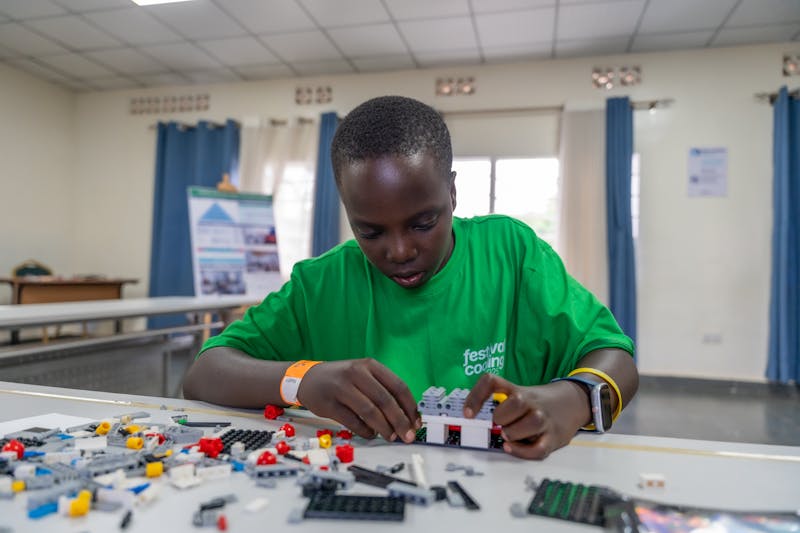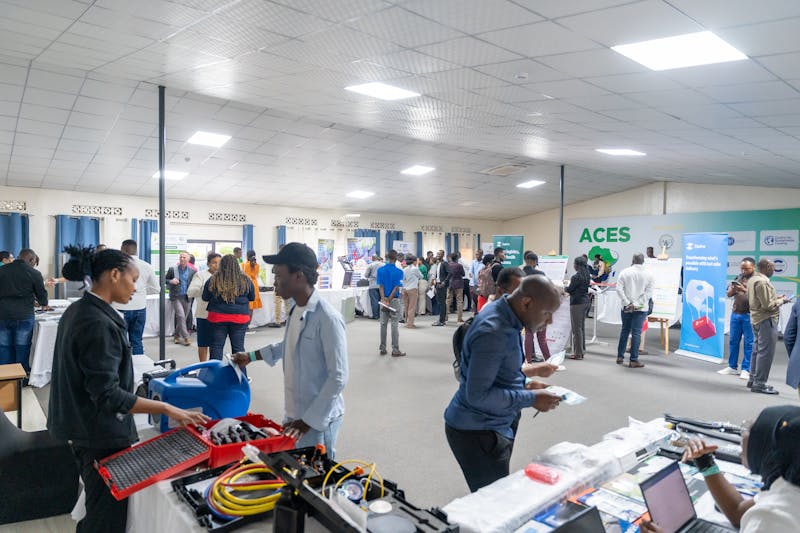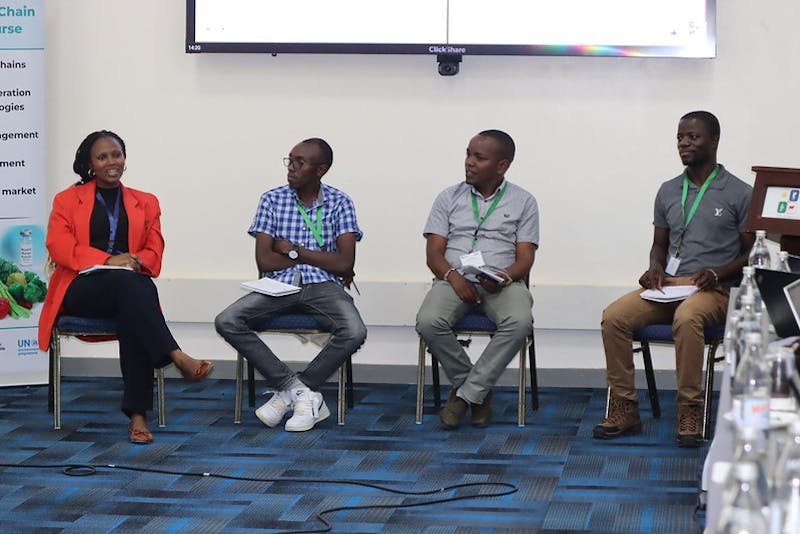Vaccine Programme
Future-proofed, sustainable vaccine cold-chain
The vaccines research programme aims to develop the ‘next-generation’ of vaccine cold-chain (VCC) systems that will be needed for future, secure, sustainable and agile access to vaccines in LMICs.
Critically this needs to be able to adopt new vaccines into the routine immunisation schedules for infants and children, be able to respond to outbreaks of vaccine preventable disease through supplementary immunisation activity (SIA), and confer the ability to deploy new genetic vaccine technologies such as viral-vectored and mRNA platforms that require ultra-cold long-term storage and ultra-rapid deployment when needed for public protection. We use real-world data models for VCC optimisation and readiness and have other biomedical projects developing novel immune-diagnostics for the assessment of vaccine policy impact and efficient vaccine and VCC utilisation for the control of immunity gaps in the population.

Two Key Themes
- Mitigating Need
Mitigate need for cold-chain by integrating new technologies from biomedical science for improved needs forecasting, digital tracking and accountability for vaccine waste reduction and cold-chain efficiency analyses, concomitant vaccination scheduling for more efficient vaccination policy, and the use of unmanned aerial vehicles (UAV’s or drones) for improved vaccine security and equitable access to new mRNA technologies.
- Whole-System Network
Develop vaccine cold chain ‘whole-system’ network analyses and the use of digital twins for virtual stress testing preparedness for future threats and solutions, especially for new mRNA vaccine and climate change
Where are we now?
Rwanda Vaccine Cold Chain (VCC) modelling project
Analysis of electronic healthcare records in train
VaccMap
Study Closed
The primary aim is to assess and evaluate the deployability and utility of digital-tracking and accountability software, as developed by project partners Circulor, to accurately track the end-to-end journey throughout the supply chain to the level of a fraction of vial (or dose) when administered to patients.
These data will have direct relevance for Rwanda and other African countries and fits into a wider programme of joint research activity between ACES and RBC that looks to develop the ‘next-generation’ vaccine cold-chain systems that afford long-term reliability, sustainability and social/economic value for the future.
VaccAir
RNEC approved: 58/2024 – Opened November 2024
This project aims to understand the role of unmanned aerial vehicles (UAVs, or drones) in the supply of vaccines to rural communities in Africa, and whether this approach can support improved vaccine security and access to new mRNA vaccine products.
This is a prospective, multi-centre, case-use study of a ‘just-in-time’ model of vaccine supply by UAV and whether this approach can overcome key strategic limitations associated with reliance on grid electricity and static cold-chain equipment.
This data will have direct relevance for Rwanda and other African countries, and fits into a wider programme of joint research activity between ACES and RBC that looks to develop the ‘next-generation’ vaccine cold-chain systems that afford long-term reliability, sustainability and social/economic value for the future.
Delivering vaccines by drone in Rwanda - News

EbolaCov
RNEC approved: 442/2024 – Study in set-up
This is a single-centre, randomized, single-blinded, vaccine safety and immunogenicity study in healthy adults living in Rwanda. The EbolaCov trial aims to inform whether the Ebola vaccine rVSVΔG-ZEBOV-GP can be administered concurrent to a BioNTech – Pfizer COVID-19 booster dose without an unacceptable increase in reactogenicity and/or loss of humoral immunogenicity to Ebola vaccine antigen.
Point of care lateral flow test
Development for real-time identification of measles vaccine and hepatitis B vaccine need – measles project with MHRA stage and aim to working prototypes by this summer.
Immune diagnostics clinical evaluation platform study
Set-up and delivered a new study on the cooling needs that underpin security for national diagnostic and pathogen surveillance capacity.
Contact the Vaccine Programme team
To get in touch with the Clean Cooling vaccines and health team directly, please email [email protected].





